SABAH POLLS | Warisan, since its founding in 2016, has made unprecedented electoral gains in Sabah, particularly in the Muslim bumiputera coastal areas.
In this Sabah election, Warisan is now also trying to make inroads into the non-Muslim bumiputera areas, but is finding itself struggling with a similar "bogeyman" problem as DAP in Peninsular Malaysia.
Warisan, demonised by opponents as an "undocumented migrant" party in the Kadazan Dusun Murut (KDM) community, is counting on its new KDM-based ally Upko to court the support from the non-Muslim bumiputera community.
But the fear of Warisan as an "undocumented migrant" bogeyman is having a spillover effect on Upko, which is struggling to shake off the association as it works the KDM ground.
Sabah BN chairperson Bung Moktar Radin also played on this fear, likening Warisan's "In God we trust, unite we must" tagline to a Filipino slogan, although "in God we trust", or "kepercayaan kepada tuhan" in Malay, is contained in the Rukun Negara.
The situation is not unlike the DAP being demonised as an "anti-Malay and anti-Muslim" party in Peninsular Malaysia, so much so that allies who associate with it are painted as stooges serving the DAP's agenda.
Warisan's meteoric rise in the 2018 general election was not reflected in the KDM heartland as it captured only four out of 10 KDM-majority seats it contested then.
Now, this task is being passed on to Upko with the hope that it can deliver better results for the Warisan Plus alliance that also includes Pakatan Harapan.
Mindful of the challenges, Upko is contesting under its own logo instead of borrowing from Warisan, as the DAP and Amanah did.
Upko, formerly known as the United Pasokmomogun Kadazandusun Murut Organisation, is well known in the KDM community.
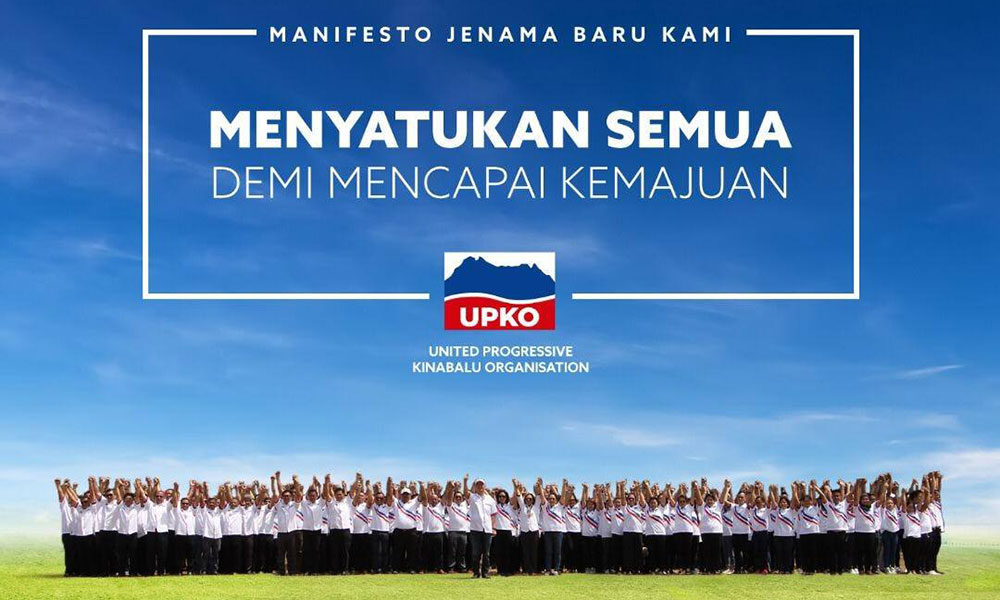
It was only last year that Upko rebranded itself to the United Progressive Kinabalu Organisation, in line with the party's aim of becoming more inclusive instead of an exclusive KDM platform.
PBS and Upko tussle for KDM dominance
Upko split from PBS in 1994, during the tail end of PBS' dominance in the Sabah government.
PBS' leadership in the 1980s and early 1990s was considered a golden age of sorts for KDM leadership in the state.
Despite the split, Upko and PBS remained part of BN and carved up the KDM seats among themselves. Both quit BN in 2018.
With Upko now aligned to Warisan, and PBS going solo but working closely with Perikatan Nasional (PN) and BN, the two KDM-based parties are set to clash.
Upko is contesting 12 seats in this Sabah election, all of which are KDM-majority seats. PBS will be present in seven of them.
Upko president Madius Tangau acknowledged that his party is expected to deliver the KDM votes for Warisan Plus but even in his own KDM-majority seat of Kiulu, there were murmurs among some voters about his association with the "undocumented migrants" bogeyman.
In conversations with Malaysiakini, some raised the issue without being prompted.
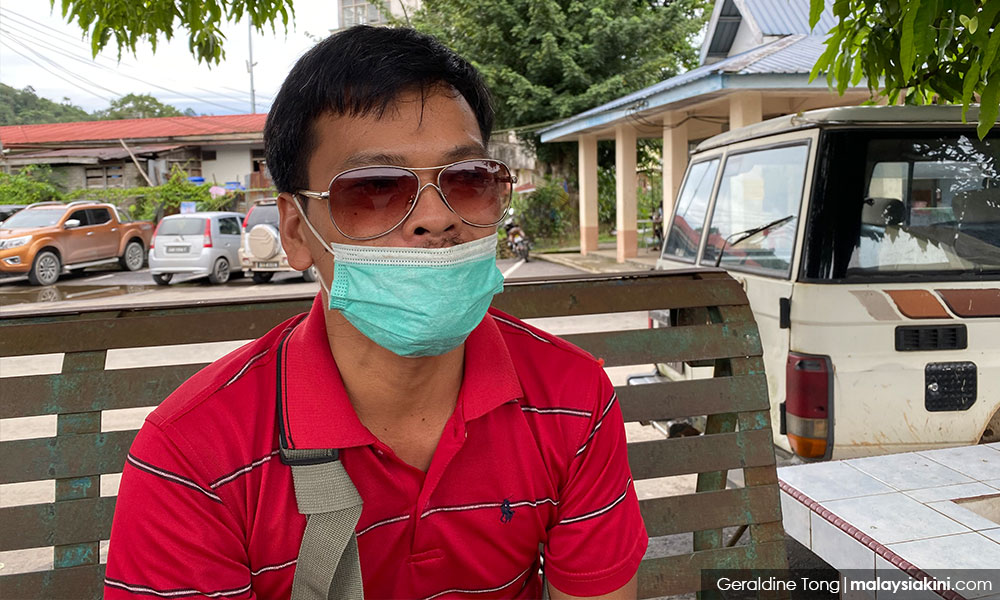
Yawas Tagih (above), a 48-year-old rubber tapper from Kampung Raganan in Kiulu, said he read about Warisan’s purported link to the increasing number of undocumented migrants in Sabah, which has turned him off Upko completely.
“For me, Upko’s situation is not as good as before, because I don’t like that they are now in a coalition with Warisan.
“I am not that interested (in Upko) because they joined forces with Warisan and there are a lot of PTIs (undocumented migrants) linked with Warisan,” he said when met at Pekan Kiulu, a small settlement nestled amid a range of mountains about 40km from the Tuaran town.
He acknowledged that the Warisan administration had provided a lot of help to his village, such as a new water pipe, but to him, the undocumented migrant issue is far more pressing.
Migrant fears trump developmental politics
Similarly, 48-year-old Christiny Yangat (below) said her support is solidly behind PBS in this election even though she liked Madius as a candidate.
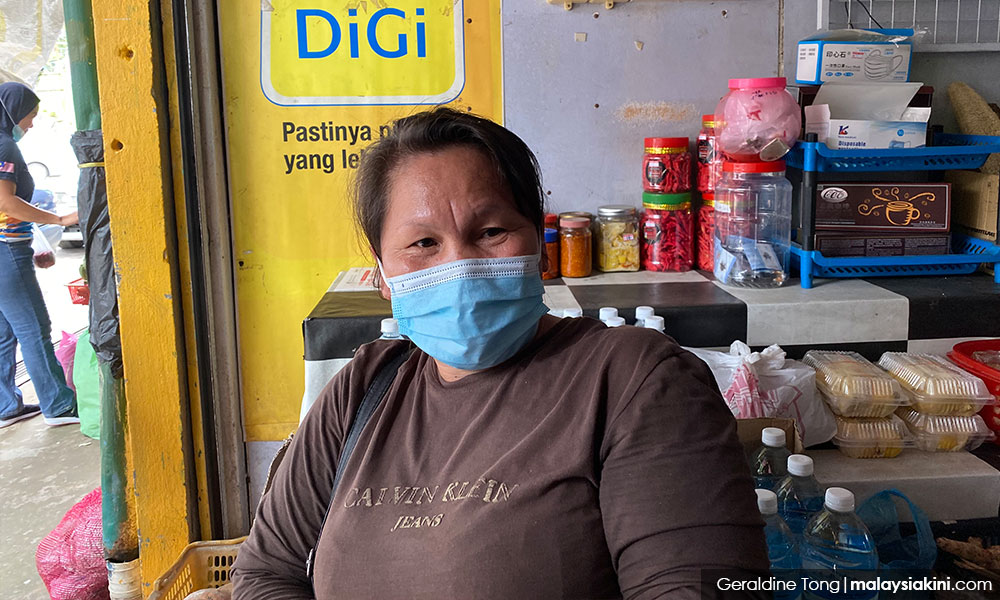
“Madius is very popular too and (the Warisan government) has contributed here, but what I don’t like is the undocumented migrant issue with Warisan,” she said.
Madius is taking enormous risk contesting in Kiulu, a long-time PBS stronghold which is held by incumbent Joniston Lumai @ Bangkuai.
Earlier in the day, Warisan president Shafie Apdal and Madius had visited Kampung Pukak in the Kiulu seat where they spoke to a crowd of about 200 people, who mostly wore Upko shirts, in an open-air hall across from the local church.
Kampung Pukak is less than 4km away from where Madius was born and bred and the surrounding areas were covered in Upko flags and posters of Madius (below, centre).
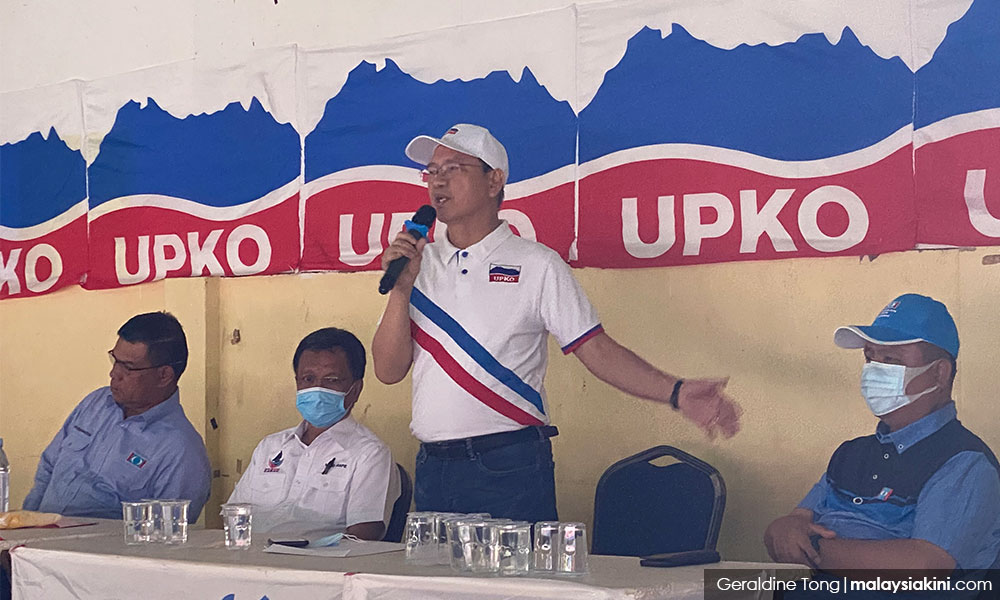
Shortly after the end of the event, a man who declined to be identified approached reporters outside of the hall and furtively revealed a PBS badge from within his bag.
“I am here to see what they had to say. I used to be a strong Upko supporter but now I support PBS.
“I don’t like Warisan because of the undocumented migrants,” he said.
The fear is in part contributed by Sabah's history which saw an influx of Filipino refugees into the state during the Moro conflict in Southern Phillippines which started in 1969.
Tainted history fuels fear
This was also fuelled by an alleged covert operation dubbed "Project IC" by elements in the federal government in the 1990s that illegally granted citizenships to undocumented migrants in a bid to alter the demography of Sabah for electioneering purposes.
The Sabah population, which stood at 1.01 million in 1980, grew dramatically to 2.6 million by 2000.
This also altered the demography of the state, with the KDM community which was the largest group shrinking from 37 percent in the 1960s to 23 percent in 2006.
Many of the Filipino refugees who fled to Sabah in the 1970s and 1980s have remained in the state.
Without documentation, their descendants have become stateless people.
It is the elephant in the room which Sabah politicians have been reluctant to address for decades due to the sensitivity of the issue.
As the refugees' descendants were born in Sabah, there is no country of origin to send them back to but setting them on a path of citizenship is highly controversial, leaving these people in a state of limbo.
Shafie, after coming into power in 2018, had tried to tackle the problem by initiating a registration process of the stateless people by issuing a Sabah Temporary Pass (PSS).
But this was played up by Warisan's opponents as an attempt to give citizenship to undocumented migrants and the party suffered in the Kimanis by-election in January for it.
The damage Warisan suffered in that by-election lingers on. Warisan and Upko are now working hard to counter this sentiment on the campaign trail.
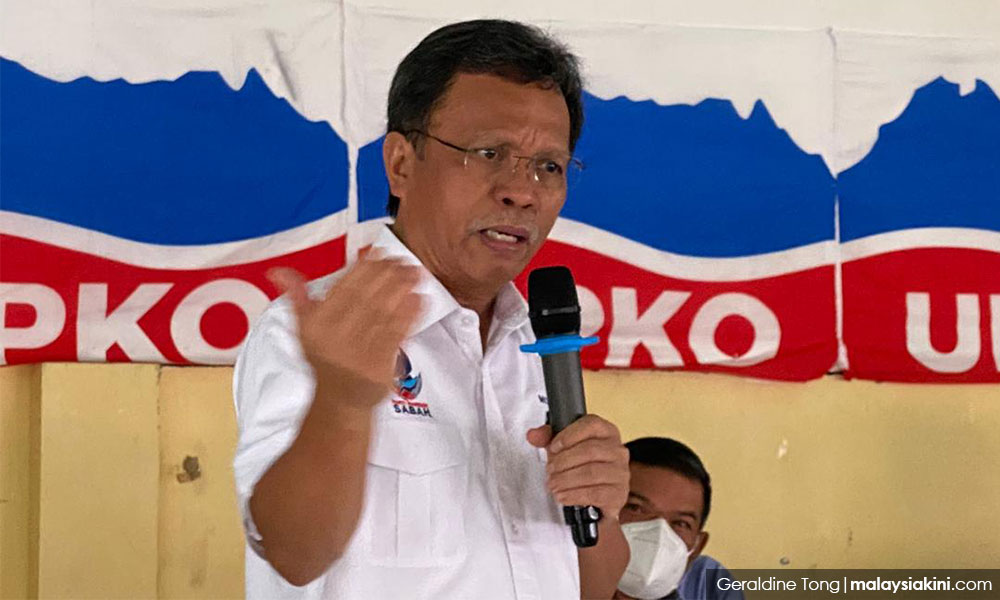
In his campaign speeches, the incumbent chief minister often made it a point to talk about how Warisan could not be responsible for bringing in undocumented migrants into Sabah as it is a long-standing issue and Warisan was only formed in 2016.
In one of his speeches, Shafie even had to invoke his Bajau ancestry and late grandmother to counter the "undocumented migrant" perception.
He has said that his ancestors’ graves are in Semporna and that Bajau is categorised as natives of the state under the Sabah constitution.
Madius previously also told Malaysiakini that they are trying to rebut this perception with the Upko machinery going deep into the KDM heartland to explain the same issue.
Race against time
There are some among the KDM community who seem to have accepted this explanation and have remained as Upko supporters.
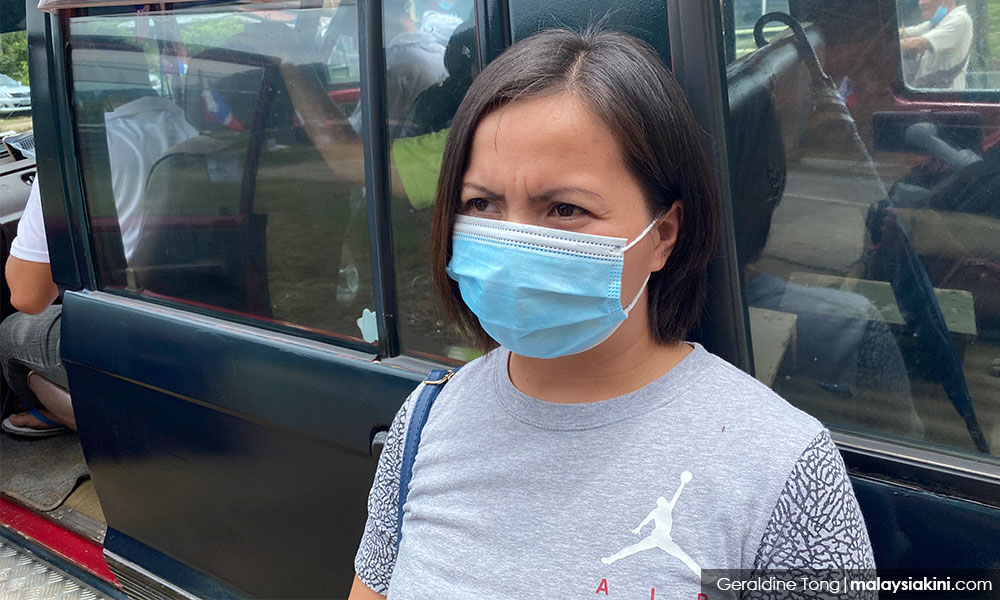
Haslinda Joipin (above), 37, was one of those in attendance at the Kampung Pukak ceramah who said Shafie’s explanation made sense to her.
“We have heard the explanation from Shafie and we already understand," she said.
But with only one week of campaigning left, Warisan and Upko will need to convince many more in the KDM community.
The KDM seats are critical for Warisan Plus to secure a supermajority as they have said this was necessary to thwart fresh attempts to bring down the new government through defections.
The snap election was triggered after Umno's Musa Aman tried to make a come back as the chief minister through defections.
However, he was stopped by Shafie who received consent from the state governor to dissolve the state assembly, paving the way to fresh elections.
Campaigning began on Sept 12 and polling day is on Sept 26. A total of 73 seats are up for grabs. -- Mkini




No comments:
Post a Comment
Note: Only a member of this blog may post a comment.